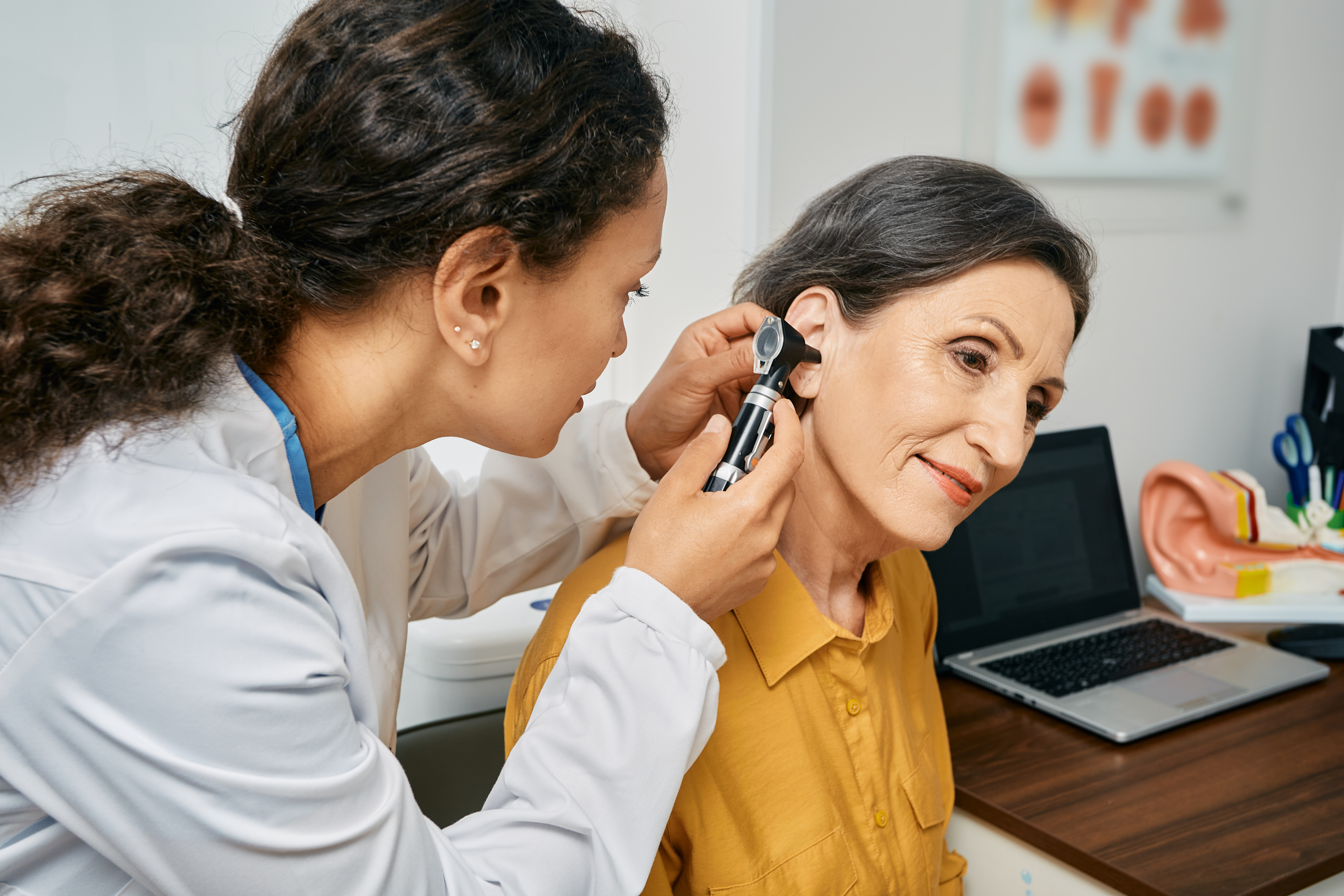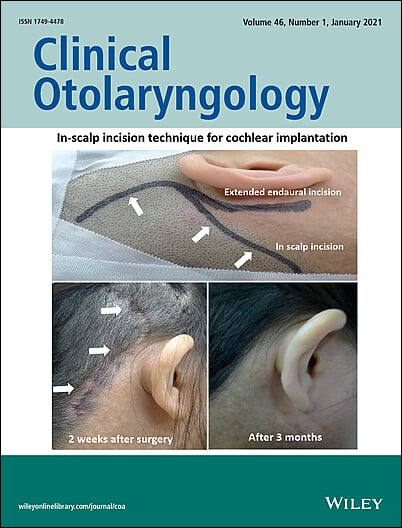Tinnitus Keeping You Up? Time to Consult a Hearing Expert
Tinnitus Keeping You Up? Time to Consult a Hearing Expert
Blog Article
Checking out the Field of Otolaryngology: What to Anticipate When You Consult an ENT
Otolaryngology, commonly described as ENT, includes the medical diagnosis and therapy of ear, nose, and throat disorders. For those experiencing related problems, consulting an ENT expert can offer clarity and alleviation. Comprehending what to expect throughout such assessments is essential for effective communication and treatment. This summary will certainly outline vital elements of the ENT experience, including common reasons for visits and the processes involved in medical diagnosis and therapy.

Comprehending Otolaryngology: An Overview
Otolaryngology, often referred to as ENT (Ear, throat, and nose) medicine, is a specific branch of medicine that focuses on the medical diagnosis and therapy of problems influencing these critical locations of the human body. This field includes a wide variety of conditions, including those pertaining to hearing, balance, breathing feature, and speech. Otolaryngologists are trained to handle both medical and surgical therapies, using sophisticated techniques and technologies. Their know-how prolongs past traditional ailments, attending to concerns such as allergic reactions, sinus infections, and hearing loss. Furthermore, they play an essential role in the management of head and neck cancers cells, supplying comprehensive treatment tailored to individual person needs. In general, otolaryngology stays necessary for preserving health and high quality of life in affected people.
Usual Factors to See an ENT Professional
Several people seek the experience of an ENT professional for a variety of reasons, showing the diverse nature of conditions that impact the nose, throat, and ear. Typical problems consist of chronic sinus problems, which usually leads to persistent nasal congestion and face pain. Allergic reactions and their connected signs and symptoms, such as itching and sneezing, also trigger sees to these professionals (ENT). Hearing loss, whether sudden or gradual, is another substantial reason for assessment. Additionally, people may look for evaluation for throat disorders, consisting of consistent hoarseness or swallowing troubles. Sleep apnea, defined by interrupted breathing during sleep, is frequently addressed by ENT experts. Each of these problems highlights the significance of specialized treatment in managing complicated ENT-related health issues
Planning for Your ENT Visit
When planning for an ENT appointment, it is vital to collect relevant details and think about any particular concerns. Clients need to compile an in-depth medical background, consisting of previous ear, nose, or throat issues, surgical treatments, and current drugs. Documenting signs and symptoms-- such as frequency, period, and severity-- can supply valuable insights for the ENT specialist. In addition, people should prepare a listing of concerns they want to ask, ensuring that all issues are resolved during the see. Bringing along any type of appropriate medical records or examination outcomes can better aid the ENT in recognizing the individual's problem. Ultimately, clients ought to confirm their visit details, including time, date, and area, to reduce any kind of final complication. Correct preparation can enhance the efficiency of the assessment and result in better end results.
What to Anticipate Throughout the Assessment
As the consultation starts, the client can anticipate to engage in a detailed conversation with the ENT expert regarding their symptoms and clinical history. The expert will certainly ask about the period, frequency, and severity of signs and symptoms such as hearing loss, nasal blockage, or aching throat. Furthermore, the patient's previous medical conditions, drugs, and any appropriate family members history will certainly be examined, helping the specialist in creating a full understanding of the client's health and wellness. The ENT may likewise inquire about way of life variables, such as exposure to toxic irritants or allergens. This open discussion develops a structure for the examination, ensuring that the individual's worries are attended to and setting the phase for any kind of required assessments or recommendations for treatment.
Diagnostic Examinations and Treatments in Otolaryngology
A range of diagnostic examinations and procedures are vital in otolaryngology to properly evaluate and diagnose problems impacting the ear, throat, and nose. Typical examinations include audiometry, which determines hearing feature, and tympanometry, assessing middle ear stress. Nasal endoscopy permits visualization of the nasal flows and sinuses, while laryngoscopy checks out the throat and singing cables. Imaging strategies, such as CT scans and MRIs, give detailed views of head and neck structures. Allergy testing may also be carried out to recognize triggers for sinus or respiratory system concerns. These diagnostic devices allow ENT professionals to create a site here comprehensive understanding of clients' conditions, guaranteeing customized and reliable monitoring strategies. Appropriate medical diagnosis is important for successful treatment results in otolaryngology.
Treatment Choices Provided by ENT Specialists
ENT specialists provide a selection of therapy options tailored to address specific problems impacting the throat, nose, and ear. These therapies vary from conventional techniques, such as drug and way of living alterations, to even more invasive treatments. Allergies may be managed with antihistamines or immunotherapy, while chronic sinusitis might call for nasal corticosteroids or sinus surgical treatment. For hearing loss, ENT experts frequently recommend listening device or surgical treatments like cochlear implants. In cases of throat have a peek at this site disorders, alternatives can include speech treatment or surgical treatments to remove blockages. In addition, they may supply assistance for handling sleep apnea, consisting of the use of CPAP tools or surgical interventions. In general, the goal is to boost clients' lifestyle with individualized treatment and efficient treatment techniques.
When to Seek Follow-Up Care With an ENT
Identifying when to look for follow-up treatment with an ENT expert is vital for managing recurring signs and symptoms or issues associated with nose, ear, and throat problems. Individuals should take into consideration setting up a follow-up consultation if signs and symptoms persist in spite of initial treatment, such as persistent ear discomfort, nasal congestion, or throat discomfort. Modifications in hearing, equilibrium concerns, or unusual nasal discharge might also call for more assessment. Furthermore, if a person experiences negative effects from recommended drugs or has actually undergone a medical treatment, follow-up treatment is necessary to keep track of healing and address any type of issues. Timely consultations can guarantee efficient administration of conditions, avoid prospective issues, and give satisfaction relating to one's health. Looking for follow-up treatment promotes aggressive health management in otolaryngology.
Often Asked Questions

What Certifications Should I Seek in an ENT Expert?
When seeking an ENT specialist, one must try to find board accreditation, relevant experience, and solid person reviews. In addition, efficient communication skills and a caring approach can substantially improve the overall therapy experience.
Exactly how Do I Choose the Right ENT for My Demands?
Picking the best ENT professional entails assessing their certifications, experience, and individual reviews (ENT surgery). It is company website crucial to ponder their communication style and strategy to treatment, ensuring they straighten with the person's particular wellness demands and choices
Are There Any Type Of Dangers Connected With ENT Procedures?
The threats associated with ENT treatments might include infection, bleeding, anesthesia issues, and prospective damages to surrounding frameworks. People ought to go over these dangers with their physician to recognize private problems and guarantee informed choices.
How Can I Manage Anxiousness Before My ENT Visit?
To take care of anxiety before a consultation, individuals can practice deep breathing exercises, imagine favorable end results, prepare inquiries in breakthrough, and look for assistance from friends or family members, promoting a feeling of peace of mind and peace.
What Should I Do if I Experience Adverse Effects From Therapy?
If adverse effects from treatment happen, the individual should quickly report them to their medical care provider. Changes to therapy or added treatments might be required to ensure safety and security and performance in handling their condition - ENT surgery. As the consultation begins, the individual can anticipate to engage in a detailed conversation with the ENT specialist about their symptoms and medical background. These analysis devices enable ENT specialists to develop a complete understanding of clients' problems, guaranteeing customized and efficient monitoring plans. ENT experts offer a range of therapy alternatives tailored to attend to particular problems affecting the ear, nose, and throat. When seeking an ENT professional, one should look for board certification, appropriate experience, and strong person reviews. Picking the ideal ENT specialist entails assessing their credentials, experience, and patient evaluations
Report this page